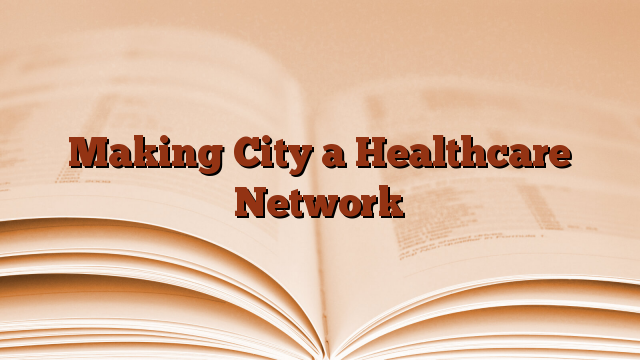Chiang Mai is envisioning a future as a smarter city, using advanced technologies to transform tourism and agriculture industries and other new drivers of creative economic growth.
Linking patient databases and health resource information could help create a hub.
Using technology to build a strong medical tourism sector and improve food production is part of the IBM-backed Smart City program.
IBM defines a smart city in terms of the improvements in quality of life and economic well-being that can be achieved through the use of information technology in the planning, design, construction and operation of urban infrastructure.
The company will award $50 million in technology and services to 100 communities worldwide over the next three years. Chiang Mai will receive $400,000, or 12 million baht, to bring in global experts to advise on new approaches, said IBM Thailand general manager Parnsiree Amatayakul.
Chiang Mai was chosen for its 700 year old culture, rich natural resources and strategic location in the Greater Mekong sub-region.
However, Chiang Mai’s Gross Provincial Product (GPP) is only 1.59% of the total Gross Domestic Product and its growth rate has been low as its economy is not very diversified. It is heavily dependent on tourism and agribusiness in food processing and agriculture.
The government, local universities and the private sector have tried to improve the local economic potential through the Creative City campaign in Chiang Mai.
IT training and creativity will be encouraged through a proposed software park program.
Nat Voravos, chairman of the local Creative City Development Committee, said improving IT skills is one of the aspects of promoting a creative economy with the aim of making Chiang Mai an attractive city for foreign investment, living, traveling, studying and working make.
Mr Nat said technology and innovation could add value to products and services, create more job opportunities and boost productivity.
The committee is working with IBM to develop a roadmap for a smarter city. It envisages using an intelligent IT architecture to expand the traditional tourism industry with a strong focus on medical tourism. A Smarter Food project, meanwhile, will focus on increasing yields and managing production schedules for farmers.
In healthcare, public and private service providers can use real-time location tracking of patients and hospital facilities to increase efficiency and build an internationally recognized service identity, said David Hathaway, project consultant at IBM Corp.
Electronic Medical Record (EMR) technology should also be rolled out to standardize information sharing and connect all medical service providers, including traditional medicine and spas.
Niwate Nuntajit, dean of medicine at Chiangmai University, said the city already has some expertise in accommodating long-term visitors, particularly Japanese. Quality services at low prices are also a major selling point in general health care, dental and eye care and traditional Thai medicine.
The university had received 500 million baht to build a center for medical excellence including robotic surgery and geriatrics to accommodate the aging society of the future.
Many countries are promoting medical services to boost their economies. Singapore is working to transform itself from a health center into a medical training center for Asia, Malaysia is encouraging medical tourism to build a tailor-made medical tourism network, India is focusing on alternative healthcare and Qatar is trying to persuade Thai companies to open hospitals in the Asian country.
“All these moves signal that the medical industry in Chiang Mai is under pressure and needs to expand its comparative advantage,” said Mr. Niwate.
Knowing what to produce and when, using technology-enabled forecasting and planning systems, will be key for the smart food project, said Nathalie Gutel, a consultant at IBM France.
The government could set up an e-farmer portal to collect data on all agricultural product categories for each season. This information could then be used to create pricing models as part of a supply-demand calculation system.
The information could ultimately reduce the risk of both shortages and surpluses of key crops.
Also, Ms Gutel said, smart irrigation could plan water use based on specific land use types and seasonal needs to reduce waste.
Chiang Mai will select a district and fruit for a pilot project to test the new applications. An IMF survey identified longan as the most promising candidate, with thousands of families growing the fruit in the north.
Ms Gutel also said that with cellphones now ubiquitous, state agricultural agencies should use their potential to provide weather information and disaster warnings.
Traceability of food from farm to table is also gaining importance from a consumer safety perspective. Technology can help improve traceability, build brand reputation and enhance export potential.
IBM opened a regional office in the city last year, she said.
The city, meanwhile, is determined to leverage local strengths in software and digital content development to create new clusters and expand job opportunities.
Martin Venzky-Stalling, an adviser to the Creative City Development Committee, said the city has as many as 150 software and digital content companies, many of them freelance operators specializing in graphic design. Some of them work in cafes along Nimanhaemin Road.
“The city has an attractive lifestyle with a lower cost of living. It also produces many graduate students who attract new high-tech entrepreneurs,” he said.
The committee plans to build a 2,000 square meter software park through a public-private partnership to provide training facilities and workspaces for IT and design talent.
The Board of Investment is also asked to designate Chiang Mai as a special economic zone with incentives for innovative companies.
Mr Venzky-Stalling said the committee expects to propose at least 10 projects with an investment budget of 200 million baht this year.
Chiang Mai has been selected as one of the 10 Creative Industries Cities by the Ministry of Commerce.
“We are applying for Chiang Mai to join the Unesco Creative Cities Network with the aim of raising awareness and attracting investment,” he added.
Thanks to Adnan Ahmed Adnan | #Making #City #Healthcare #Network

Leave a Reply